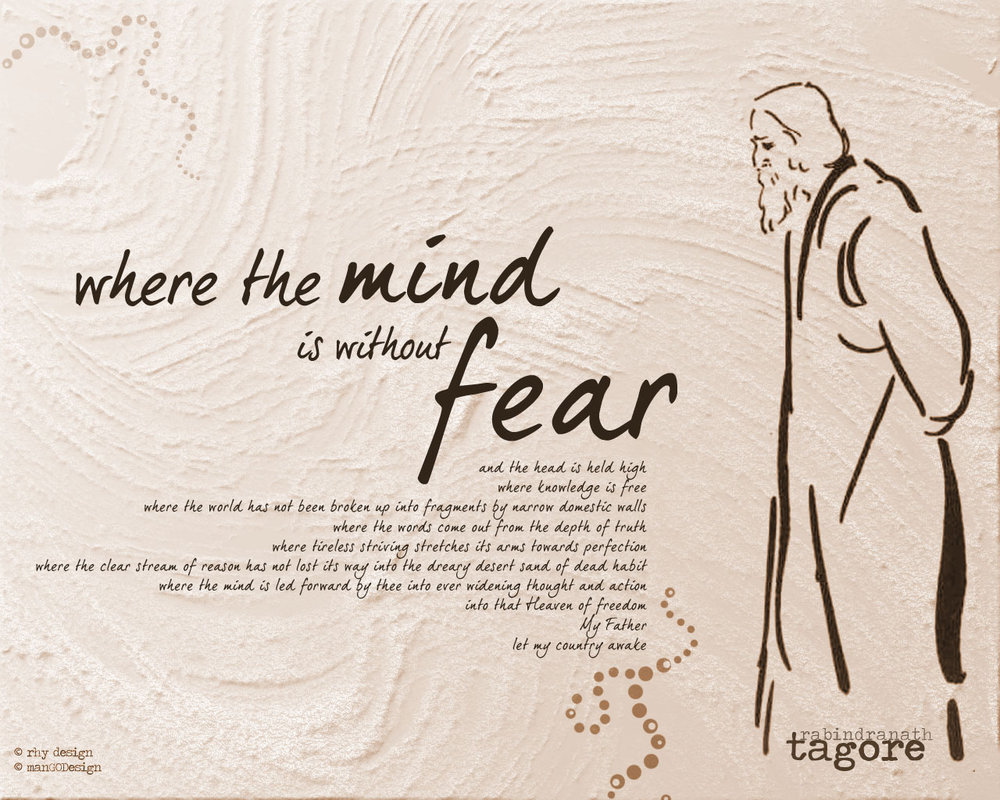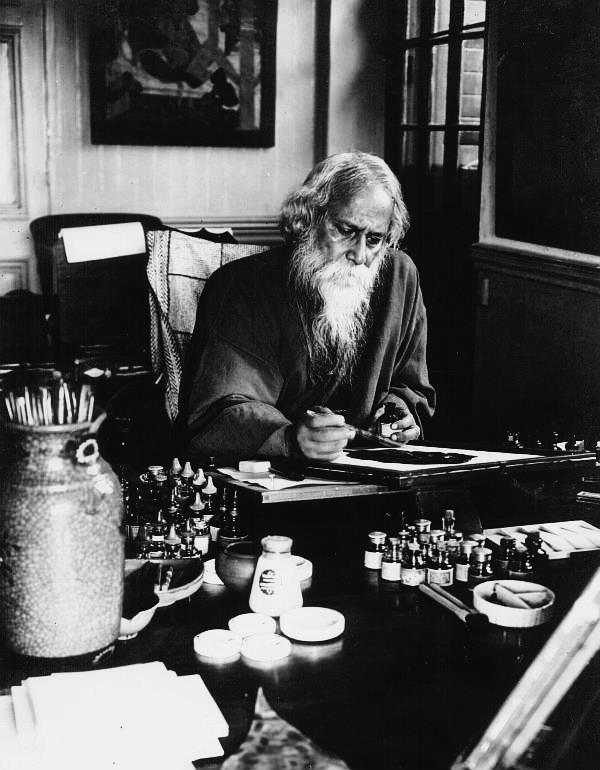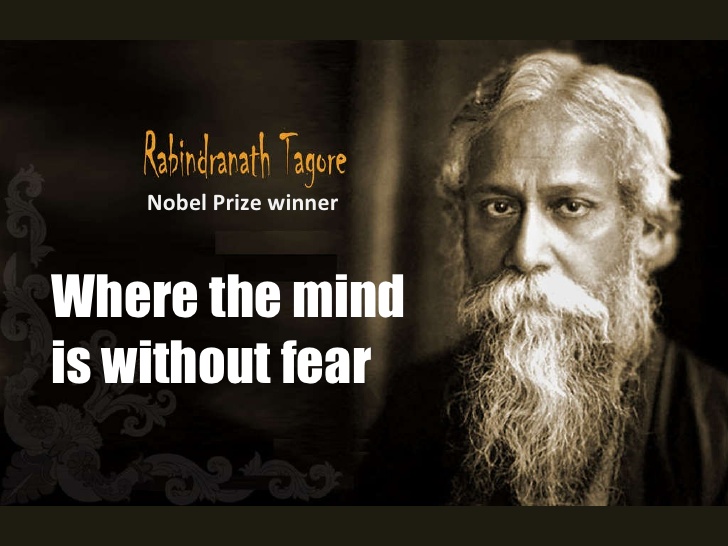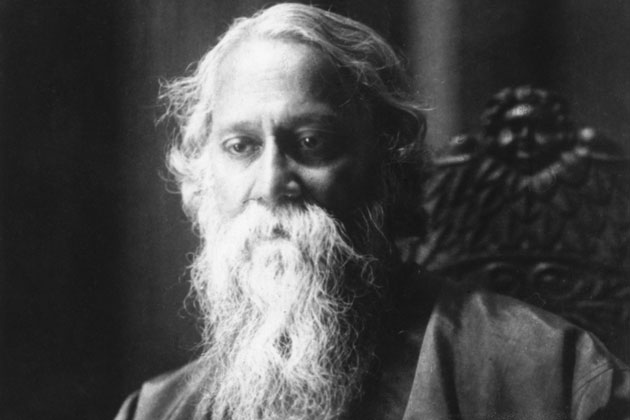
Where the Mind is Without Fear: About the Poet Rabindranath Tagore reshaped Bengali music and Indian art during the 19th and early 20th centuries. He became the first non-European to win the Nobel Prize in Literature in 1913, and he won it for his collection of verses and songs known as Gitanjali or The Song Offerings. Tagore introduced new poetry and… Continue reading Where the Mind is Without Fear: Line by Line Summary: 2023

This poem is Tagore’s way of protesting against organized religion. He feels that organized religion teaches its believers false methods of worship, such as chanting mantras, singing hymns, counting beads, offering flowers, and lighting incense. If we read through this list of false methods of worship, we will see that Tagore’s attack is aimed specifically… Continue reading Open thine Eyes and See thy God: Analysis: 2022

“Open thine Eyes and See thy God” appears as Verse 11 in the English translation of the Gitanjali by Rabindranath Tagore.The original Bengali collection entitled Gitanjali contained 157 poems and was published on 14th August 1910. The English Gitanjali or Song Offerings is a collection of 103 English poems – Tagore’s own English translations of his Bengali poems – first published in November 1912… Continue reading Open thine Eyes and See thy God: Summary: 2022

Where the Mind is Without Fear: Analysis “Where the Mind is Without Fear” was written during the reign of the British in India, prior to the country gaining its independence from colonial rule. In fact, Tagore died just a few years before 1947, when India became independent. So the country that he was living in… Continue reading Where the Mind is Without Fear: Analysis: 2022

I Had Gone a Begging by Rabindranath Tagore is the fiftieth poem from his Nobel Prize winning collection, Gitanjali. Written in blank verse, this poem is the story of a beggar, who is the poet himself. Narrated in a first person account, the poet has directly addressed the poem to the King of King’s. He… Continue reading I Had Gone a- Begging Analysis by Tagore

About the poet: Rabindranath Tagore (7 May 1861 – 7 August 1941) was a Bengali poet of India born in the city of Kolkata (formerly known as Calcutta). His name is written as Rabindranath Thakur in Indian languages. Tagore had early success as a writer in his native Bengal. With his translations of some of his poems he became rapidly known in… Continue reading I Had Gone a- Begging Summary by Tagore

“Prayer for Strength” is an inspirational poem by the versatile Rabindranath Tagore. The poem is in the form of a prayer, and the poet is asking the Lord to provide him with strength so that he can overcome all the hurdles in life. Prayer for Strength: Summary The poem begins with the poet asking Lord… Continue reading Prayer for Strength: Summary

“Where the Mind is Without Fear” was written during the British reign in India, before the country gaining its independence from colonial rule. In fact, Tagore died just a few years before 1947, when India became independent. So the country that he was living in was a country under oppression. However, the oppression was not… Continue reading Where the Mind is Without Fear: Analysis

Where the Mind is Without Fear was included in the volume called ‘Naibedya’, the original poem bears the title ‘Prarthana’ meaning prayer. The poem is a prayer to God. The poem was written by Rabindranath Tagore during the time when India was under the British Rule and people were eagerly waiting to get their freedom… Continue reading Summary of Where the Mind is Without Fear by Rabindranath Tagore

The poem ‘Flute Music’ unveils the life of a bachelor clerk who is constantly at war with his poverty. The article attempts to provide a Flute Music: Summary by Rabindranath Tagore. Flute Music: Summary The poem portrays a poor clerk named Haripada who lives in the alley of a milkman named Kinu. The room is… Continue reading Flute Music: Summary





